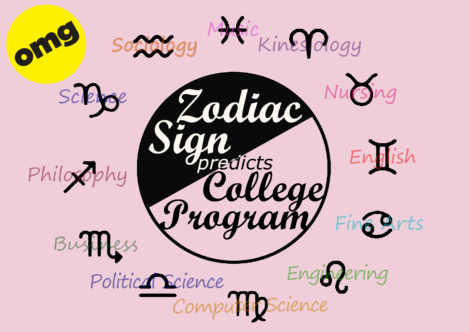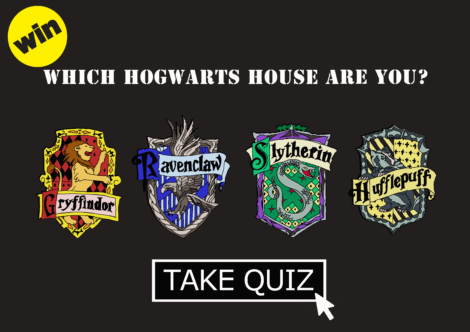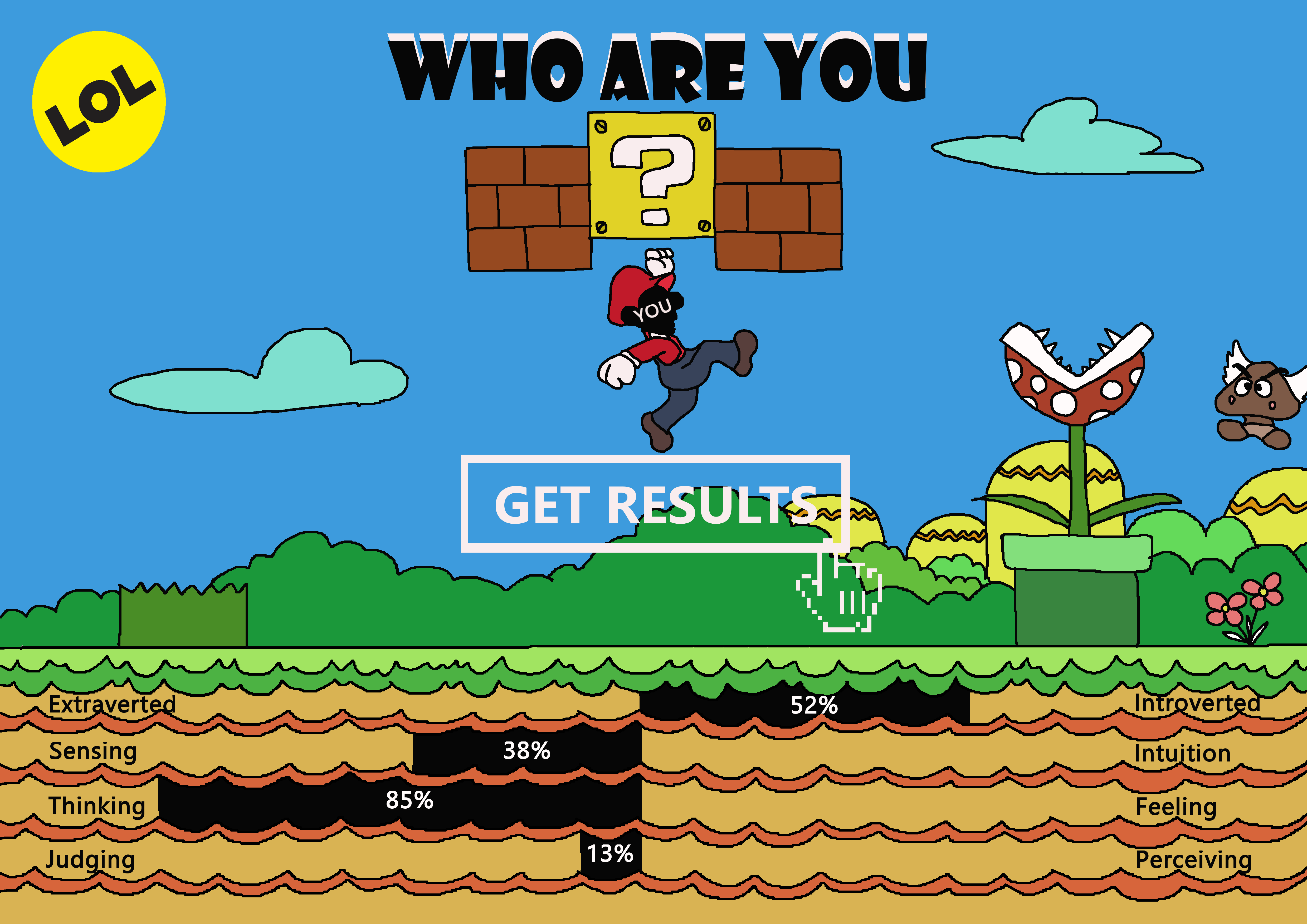Hypertabs is The Varsity’s online features subsection about all things internet. Our goal is to explore the depths of the online world and understand how it shapes our habits and affects our communities.
It’s rare to see a social media bio that does not contain some reference to a zodiac sign, a Myers-Briggs type, or a Hogwarts House. And it’s nearly impossible to go on Facebook without seeing a friend sharing an online quiz like “Which Disney Princess Are You?” or “What Age Are You, Really?”
From the popularity of self-report personality questionnaires like the Myers-Briggs Type Indicator (MBTI), countless astrology websites, and Buzzfeed quizzes, it’s clear that in the digital age, we like to categorize ourselves.
Sometimes, these categories can transform an individual’s identity, their relationships, and their sense of place in the world — both online and offline.
Astrology: a history of categorization
Thousands of years before astrology websites and columns became popular, Mesopotamian, Indian, Egyptian, and Assyrian astrologers were developing the foundations of modern astrology. The creation of the 12 zodiac signs we have today is heavily credited to the ancient Greeks, who believed that our life trajectories could be predicted by the stars.
For the remainder of Western history, the popularity of astrology depended on the historical period and the prevailing powers of the time.
Despite being regarded as a pseudoscience by most of the scientific community, astrology remains more popular than ever. Astrology websites and resources are ubiquitous online, and daily or monthly horoscope sections are still included in many publications.
Joan Ann Evelyn, President of the Canadian Association for Astrological Education and member of Astrology Toronto, says that a benefit of understanding astrology is “becoming the person you were meant to be.”
Evelyn has identified with her astrological sign, Leo, since her teens. She initially turned to astrology because she “did not understand the path [her] life had taken” and “wanted some answers,” which she found via her astrological birth chart.
Like Evelyn, millions of people throughout history — from the ancient world to the digital age — have tried to understand their personality through their zodiac sign.

IRIS DENG/THE VARSITY
![]() MBTI and online communities
MBTI and online communities
During World War II, Katharine Cook Briggs and her daughter Isabel Briggs Myers were determined to create a tool to help people better understand themselves and others. Inspired by the research of psychiatrist Carl Jung, they created the MBTI questionnaire, which divides people into four-letter personality types. The possible trait groups are introversion (I) or extroversion (E); sensing (S) or intuition (N); thinking (T) or feeling (F); and judging (J) or perceiving (P).
While some critics now deem the MBTI unscientific, it is still widely used across the world.
Joseph Simone, whose results on the Myers-Briggs test list him as an ENFP, is the creator of “Toronto Intuitives,” an online group created in 2015 that regularly plans real-life meetups for people sharing the ‘intuition’ trait. The group has just over 500 members.
Journalist Drake Baer has criticized the Myers-Briggs test by likening personality tests to horoscopes: both mediums identify people with non-offensive markers that can then become integral parts of their identities. If you only see yourself as an INTJ or an ESFP, Baer argues, you may limit yourself.
However, after learning more about how the mind of an ENFP supposedly works, Simone says he was able to “concretely improve [his] life.” He was inspired to start his Toronto Intuitives group and was better able to connect with family members who were once difficult to understand.
“Learning about what makes me different or the same from others around me has deeply impacted the way I talk to people, my ability to empathize with them, and my own identity,” says Simone.
“It has helped me understand the reasons behind miscommunications, relationship incompatibility, and how to curate my life to suit me best as an ENFP.”
What kind of avocado toast are you?
Online personality quizzes – although taken less seriously than astrology and the MBTI – showcase our sustained fascination with fitting ourselves into categories in the digital age. Even if those categories are, at times, as ridiculous as which Disney character you are.
One avid online quiz-taker is Shuyin Yu, a graduate of U of T.
“I remember finding online personality quizzes on websites like Blogthings back in junior high school, so I’ve been taking these quizzes for fun for a very long time,” writes Yu. “It wasn’t until Buzzfeed became really popular that I started taking personality quizzes regularly.”
Yu says she takes an average of a dozen Buzzfeed quizzes every day and shares the results on Facebook if she finds them interesting or knows certain friends would be interested in taking the quizzes.
On a smaller scale, Yu is building a community and encouraging interaction through her quiz results. Perhaps there is a sense of belonging in getting the same avocado toast result as someone, just as there is in sharing an MBTI trait. Even though Yu mainly takes online quizzes for fun, there still seems to be a fascination she has with categorizing herself and sharing this categorization with others.
“I think it’s a fun activity, and something people should be allowed to enjoy,” says Yu.

IRIS DENG/THE VARSITY
A sustained interest
For Evelyn, the purpose of astrology isn’t to limit yourself or fit into a box — it’s to learn more about yourself: “There is an innate need within people to learn who they truly are,” she writes in an email to The Varsity.
“I do not think people pursue Astrology because they want to fit into a particular category,” says Evelyn. “Many of them are on a quest to find out their purpose in life. I see my own goal as an Astrologer as helping my clients gain a better understanding of their own life.”
Simone echoes Evelyn’s sentiments but laments that some people may mistype themselves or use their Myers-Briggs type as a “shallow label for themselves” or wear their type “like a piece of cheap jewelry,” failing to fully understand the MBTI system.
“I think many people today want to find ways of understanding themselves and others,” says Simone. “But the purpose of these systems is not to create new boxes or labels, but to show you where you are and how you work.”
“Finding your ‘type’ won’t change who you are; it will give self-awareness.”
However, skeptics like journalist Jordan Shapiro have explained the popularity of online personality quizzes through Sigmund Freud’s concept of displacement, which suggests that the psyche unconsciously redirects an impulse from the potentially-dangerous and toward the superficial. In this case, Shapiro proposes the anxiety we feel about “algorithmic targeting” and online surveillance is displaced into parallels that are seemingly safer or more fun — like online personality quizzes, which also require a collection of information and subsequent algorithmic categorization.
With millions of Google searches for personality quizzes and zodiac signs, along with the ability to instantly communicate with others online, it is easier than ever to seek out labels and form communities around them. While some may brush off our sustained interest in categorizing ourselves as purely narcissistic or meaningless, that interest speaks to our deeper need to understand ourselves, relate to others, and find familiarity in an often chaotic world.


